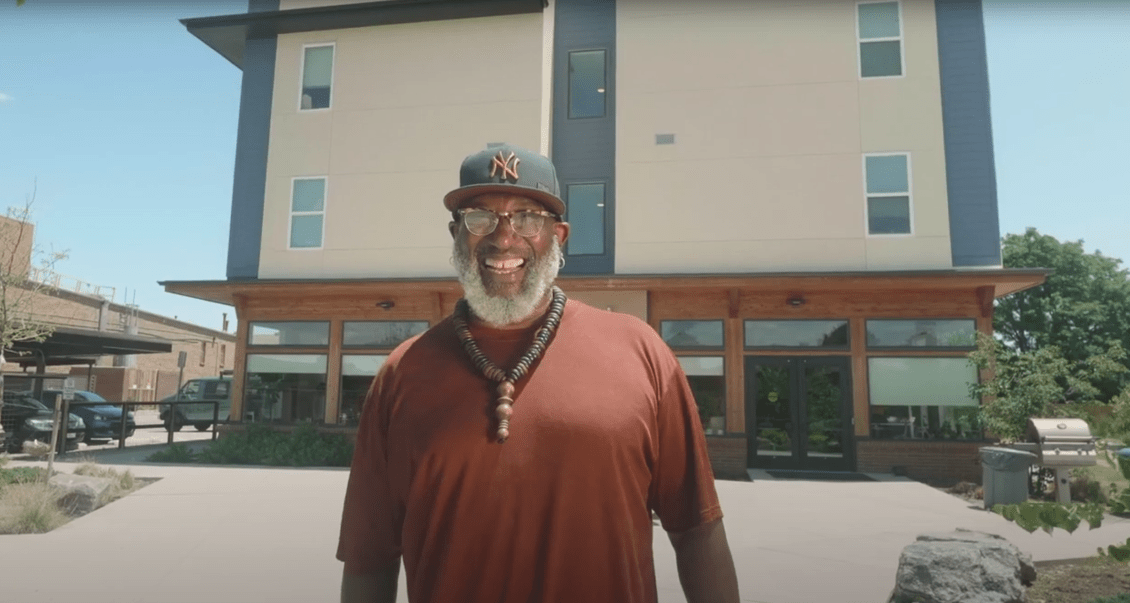Nearly 80% of formerly incarcerated people and their families report being denied housing due to a criminal conviction. That’s according to a 2015 study led by the Ella Baker Center for Human Rights, Forward Together, and Research Action Design, which also found that formerly incarcerated people are 10 to 13 times more likely to experience homelessness than those who have not been incarcerated.
A history of criminal legal system involvement can result in housing discrimination, income instability, a need for employment services, and other challenges. For people of color, who are disproportionately impacted by the criminal legal system, those impacts are magnified.
Research has shown that housing programs, which are associated with lower crime and recidivism, are key to ensuring successful reentry into society for formerly incarcerated people. That’s why housing providers are actively working to dismantle these barriers and create access to opportunity. Enterprise’s Justice Involved Homes program is dedicated to assisting people impacted by the criminal legal system through community engagement, research, and educating and training housing providers on ways they can support and create safe, stable, affordable homes.
These three organizations leverage community development financial institution (CDFI) dollars to build innovative housing models and expand proven solutions to help people rebuild their lives after incarceration:
This Colorado-based nonprofit aims to be the state’s premier community reentry program—and a model for the nation. SCC is building its pipeline of projects to serve formerly incarcerated persons so they can live successful and fulfilling lives after incarceration.
Their most recent projects, a 128-unit LIHTC development in Denver, was powered in part by $3.5 million in predevelopment and acquisition financing from Enterprise Community Loan Fund (ECLF), Enterprise’s CDFI. Sixty units will be set aside for permanent supportive housing. The remaining 68 units will receive referrals from SCC’s network to house their current clients who do not require as many services but have difficulty finding housing due to their backgrounds. The entire project will exceed the requirements for Certification of the National Green Building Standard (NGBS) and will include electric vehicle charging stations.
Providence House and IMPACCT Brooklyn
Providence House provides comprehensive, community-centered, trauma-informed services for women and children in New York at risk of harm. The organization recently completed a substantial rehabilitation of two buildings into 21 supportive housing units prioritized for formerly incarcerated women. The project, co-developed with IMPACCT Brooklyn, was supported by a $979k construction loan and a $453k permanent loan from ECLF and achieved Enterprise Green Communities Standard.
Founded in 1967, The Fortune Society supports successful reentry from incarceration and promotes alternatives to incarceration. The organization recently acquired an existing 83-unit single room occupancy building in Manhattan. Rehab will incorporate green building components while bringing much needed permanent supportive housing to a neighborhood that has lost a significant number of affordable homes in recent decades. The project was supported by ECLF with a $13.2 million predevelopment and acquisition loan through the New York City Acquisition Fund. ECLF also provided predevelopment funding to support the new construction of an 82-unit supportive and affordable housing project which is currently under development in East Harlem.
Theresa Cassano is the director of lending for ECLF. Joseph Mattingly is a senior loan officer for ECLF.
